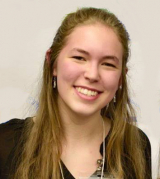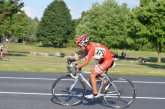Combination Therapies with CDK4/6 Inhibitors in Pediatric Solid Tumors

Background
Ewing sarcoma and neuroblastoma are aggressive solid tumors occurring in children. While a subset of children with these cancers will be cured with standard therapies, there are many others for whom treatments are ineffective, leading to death from cancer progression. Some malignancies have recurrent mutations in genes in the cancer cells that make them vulnerable to targeted drugs. Ewing sarcoma and neuroblastoma, in contrast, typically do not have these types of gene mutations, which makes it more difficult to establish effective targeted drugs to treat the cancer cells. Moreover, cancer cells quickly become resistant to single agent therapies and combinations of drugs are necessary to achieve durable responses. The Stegmaier lab and others have found that certain proteins that control cell cycle progression, CDK4 and CDK6, are essential to Ewing sarcoma and neuroblastoma survival, respectively. Drugs that inhibit these proteins are effective in Ewing sarcoma and neuroblastoma preclinical models. It is clear from prior studies that CDK4/6 inhibitors need to be used in combination with other drugs for maximal effectiveness. We have performed a pilot small molecule screen in Ewing sarcoma that demonstrates that CDK4/6 inhibitors are strongly synergistic with inhibitors of IGF1R, a protein involved in cancer cell growth and survival and have validated this in vitro and in vivo.
Project Goal
Based on the preclinical literature as well as our genomic screening data, we hypothesize that this combination will also be effective in neuroblastoma. First, Caroline will comprehensively test the combination of CDK4/6 inhibitors with IGF1R inhibitors in neuroblastoma. She will investigate how neuroblastoma cell viability is affected with each individual drug versus with the two-drug combination. In addition, she will assess the effects of synergistic concentrations versus single agent treatments on cell cycle, apoptosis, and anchorage-independent growth. Next, to expand the application of CDK4/6 inhibitors in Ewing sarcoma and neuroblastoma, she will develop an unbiased, genome-scale screen with state-of-the-art CRISPR technology to identify other novel targets for inhibition with CDK4/6 inhibitors. She will work to optimize the conditions for screening in the laboratory, including drug and virus concentrations, and will troubleshoot assay conditions with colleagues at the Broad Institute. Based on this screen, new combinations with CDK4/6 inhibitors will be validated in our laboratory, including by Caroline, if she pursues a thesis project with our lab during her senior year. Caroline's projects will inform second-generation trials with CDK4/6 inhibitors for children suffering from these devastating diseases.
Mentored by Dr. Kimberly Stegmaier
Dana-Farber Cancer Institute, Boston, MA

